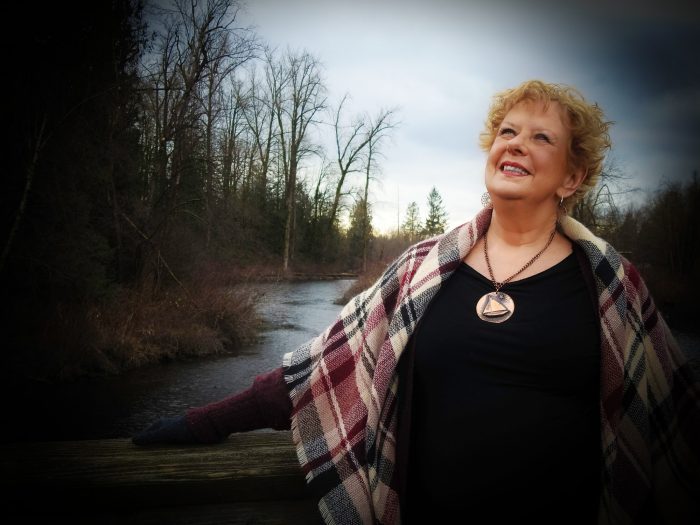I walked out into my front courtyard on a sunny day this week. I wanted to breathe in the fresh air and check on the daffodils I planted last fall. Were they blooming? I smiled as I saw the cheerful flowers dancing in the breeze.
Then I looked up across the street. What was that I saw? Two men huddled together with their heads under the hood of a car. I knew they were neighbours and didn’t live in the same household. What about the recommended space of at least six feet between people who were not of the same family?
There was no evidence of ‘physical distancing’ for them.
One of them looked up and waved a friendly hello. The other kept his head down. I was shocked and upset at their lack of compliance to the guidelines for preventing the spread of the virus, COVID-19. I knew one of the men was over seventy years old, with health challenges. The other neighbour was still going to work at a Building Supply Store in town. He certainly would have had contact with many others.
What were they thinking?
Or was that the problem: They were not thinking.
I called across the street, “Are you guys six feet apart?” The older man laughed and sarcastically said, “Of course we are.” In a heartbeat I replied, “This is serious stuff. You need to stay further apart to stay safe.” They ignored me and I walked inside, fuming and fearful all at the same time.
As a nurse, I am acutely aware of the risks of the COVID-19 pandemic. Even though I am retired from actively practising as a nurse, I want to teach others about the risks that are so obvious to me. I am no longer frontline medical personnel; however, I was a critical care nurse during the SARS epidemic of 2003. I remember the anxiety of not knowing who would get sick next. Would we as medical personnel be safe? What treatments were available to heal my patients? I wore protective clothing with a specially designed mask, goggles and gloves. I focused on hand washing and staying away from those at risk. I will never forget that experience.
What the world is facing today is much more serious and pervasive. In my lifetime I have never been in a situation like this. None of us have!
My heart was racing, and my shoulders were tense as I thought about my interaction with my neighbours. I had been triggered by this interaction, and I felt it in my body. I allowed myself to vent as I yelled at the men from inside my home where they could not hear me. I noticed tears in my eyes and got in touch with my fear as well. I may be at risk because of my irresponsible neighbours. I thought of my 95-year-old father who might also be at risk if others are not keeping their distance and staying at home.
As I sat on the couch, I noticed the classical music that was playing. The Bach piano fugue soothed my spirit and I brought my attention to my breath, breathing in and out deeply and slowly. My heart rate slowed, and my shoulders relaxed.
I thought about other times recently when I have been upset by what I perceive as unsafe behaviour. How am I to deal with this?
I offer some ideas here that I am playing with. I find it is much easier to write about them than to practice them in my daily life. And, my intention is that these ‘Six Steps to Courageous Conversations During COVID-19′ will support you in your relationships as you set the goal to stay healthy and safe.
Look at the following guidelines that offer a way through this uncharted territory that we have found ourselves in.
- FOCUS ON WHAT IS IN YOUR CONTROL
Being responsible for your own safety and health is paramount. It is not up to you to control others’ actions, even though you may not approve of their choices.
You can choose to have a ‘courageous conversation’ if you see unsafe behaviour within your family or close circle. For example, if I see something that causes a risk to my grandchildren, my children or my aging parents-in-law, I am responsible to speak up.
This is where it can get tricky. How do we speak up without hurting the other person’s feelings? What if we lose a friendship because of speaking up about our concerns?
- STOP
Take time to become aware of what is going on for you. Pay attention to your physical symptoms to get in touch with your emotions. For example, is you stomach upset? Is it because you are afraid? Are your fists clenched as well as your jaw? Could this be a sign of anger or frustration? Put a name to your feelings, if possible. Often anger can be a cover up for another emotion. Maybe it’s anxiety, or a fear of being abandoned if you speak your mind. Then ask yourself what you want right now in this specific instance. Know that you can ask for what you want from the other person, and then it is important to let go of the expectation that they will agree. Not an easy part of the process!
- STATE YOUR INTENTION
When you are clear about your experience and feel settled emotionally, approach the other person. Take a moment to tell them why you want to talk to them. This will prepare them for what you are about to say.
- DESCRIBE YOUR EXPERIENCE
It is important to describe what you see them doing, and how it impacts you, and share with them what you want from them. This is when you might be vulnerable and tell them your fear of getting sick. Or your worry about infecting others. Vulnerability takes courage and it also opens the door to authenticity and connection.
- LISTEN
Now is the time for you to listen. Ask them to tell you what is happening for them. For me, this is the most challenging part of the conversation. I want to interrupt, to argue and to blame them for their actions. However, when I listen, I learn. I may hear things that they are doing to keep safe. Or they may tell me that they are not worried because they think they are not at risk.
After they have finished talking, tell them what you heard to make sure you didn’t miss anything. You may be surprised at this point to hear them correct you and tell you in more detail what is really going on. Listening is not a passive process. In fact, it takes tremendous focus and energy to be a careful listener.
- DECLARE YOUR ACTIONS
Now it is your turn to talk. It is crucial to focus on the issue of safety and health, rather than shaming the person you are talking with. Focus on actions that will keep you safe and healthy. It may mean separating yourself from the other person if they don’t practice ‘physical distancing’. Hard as this may be, it is imperative to remember you are doing this in the service of caring for yourself and others.
There will be many other opportunities for courageous conversations in the coming days. Many of us are living at home full time with our families and working from home. What a change from the usual routine of heading off to school, day care and work! Tempers may get short and there may not be enough space to ‘get away from it all’.
This is the perfect time to practice the steps outlined for having a courageous conversation. I can speak from my own experience, as my husband and I adjust to living together in a small space 24/7. He is no longer away golfing, and I am writing from home, rather than hanging out at my favourite coffee shop. We check in with each other daily and plan our activities together. Whose turn is it to cook? What about cleaning the bathroom? It isn’t always easy to speak up for what I want, and to negotiate our new partnership and yet, this is what is necessary right now.
Be gentle with yourself during this time of uncertainty and change. Courage shows up in the little interactions and in the day to day moments. See yourself as an advocate for the health and safety of us all, and I know you will shine in the darkness of a world-wide experience unlike any other.
Perhaps you have more time to read these days. You will find more ideas in my book, ‘Saying Yes to Life: Embracing the Magic and Messiness of the Journey’. Check it out!
Book Link: http://www.marjoriewarkentin.com/book/







Read 0 comments and reply